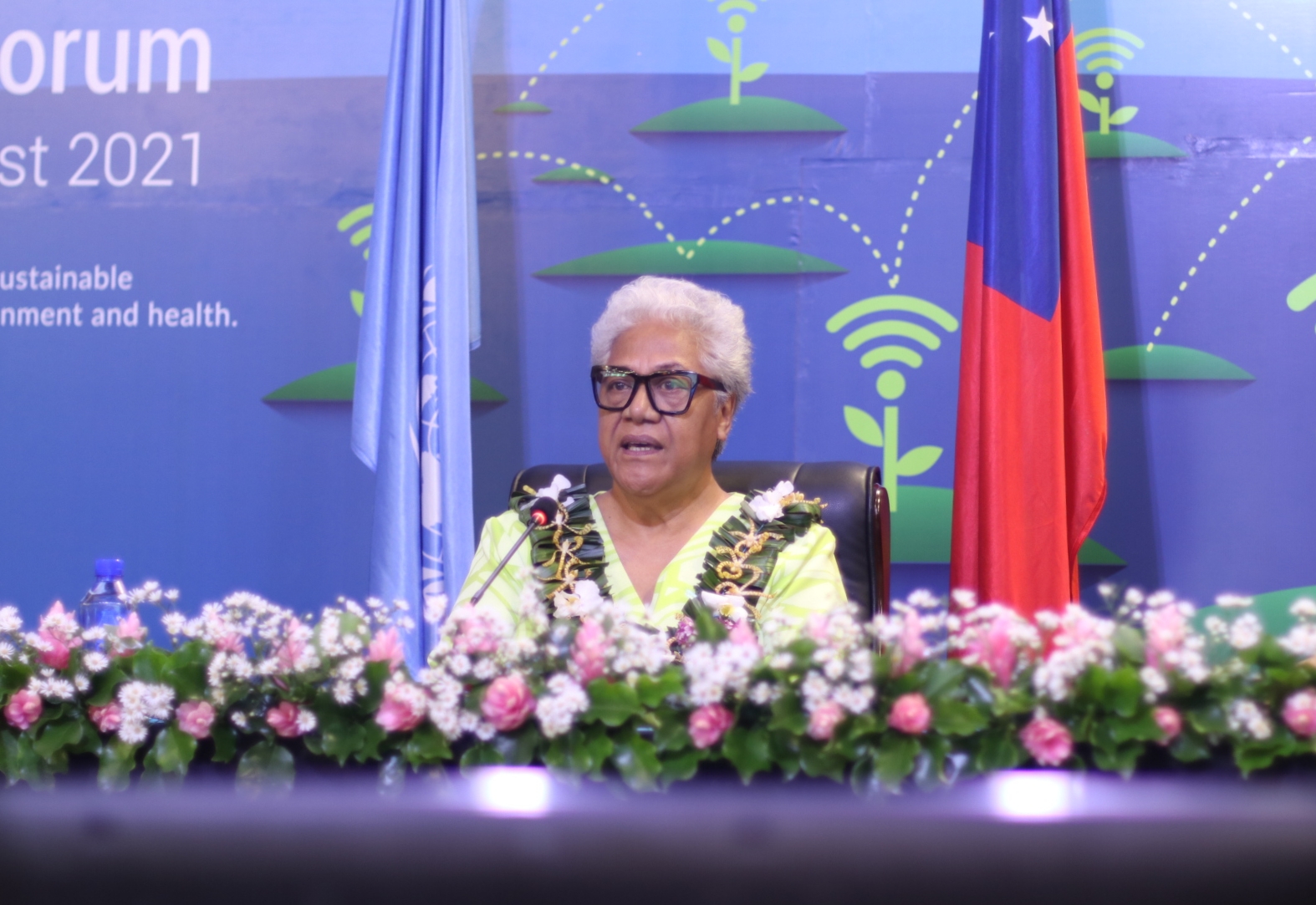I congratulate FAO for this Forum especially the SIDS Solution Platform
launched this morning. I believe that our gathering this week and the SIDS
specific solutions this event will promote and seek; can help deliver some of the
promises for SIDS as articulated in the SAMOA Pathway. In particular, solutions
on fostering entrepreneurship and innovation; accessing appropriate, affordable
and modern technologies and increasing connectivity and the use of information
and communications technology for the benefit of our people.
Our unique circumstances as small islands developing states, coupled with
the current COVID19 impacts and ongoing climate change threats, call for
transformational SIDS-specific homegrown solutions. The COVID19 situation,
forcing border lockdowns and State of Emergency restrictions further emphasize
the importance of digitalization for SIDS, in order to build resilience and meet the
sustainable development goals.
Samoa will continue to prioritize the need to invest in digital technologies
and to promote a digital economy. This is key to stimulating business
opportunities in e-commerce and e-services, as well as increasing productivity
and growth in more traditional sectors such as agriculture and tourism. We
underscore how investment in innovation and digitalization for Samoa, can
enable more efficient delivery of health and education; improve connectivity
2
between rural and urban communities; advance economic empowerment for
women and youth; and assist with more efficient public service delivery.
To fully realize the benefits of a digital economy, Samoans must be able
to connect with and trust the technology; an enabling business environment must
be in place, and investment in education, skills, and digital literacy is paramount.
The availability of fast, reliable and affordable internet services to government,
the business community and the public is crucial.
Our vision for an inclusive financial system means focusing on promoting
digital financial services and institutional innovations, such as branchless banking
and mobile money to increase the access points, especially in rural areas. We
have successfully linked mobile money wallet(s) to bank accounts and are seeing
the rise in the use of such services. People can now pay water and electricity
bills, check bank balance as well as shop online. This is an important
breakthrough also for our women and youth.
With today’s current COVID situation and restrictions, the ability to send
and receive money to and from overseas on mobile phones has been critical for
our people. Family overseas can buy food and groceries for families in Samoa,
pay electricity bills or top up mobile phone credits. Facilitated capability to carry
out these simple tasks not only impact on the everyday lives of our people, but
also provides needed business for our private sector.
In the agriculture and health sectors, we are investing in digital solutions
such as Apps for contact tracing or for information sharing between farmers. We
recently launched our e-Health System to improve medical record keeping and
strengthen health information and vital statistics. This is an important step in our
response to COVID19 and building on the lessons learnt from the measles
epidemic. More importantly, as we expect increasing health security threats, this
e-Health System will be vital to protecting the health and wellbeing and enhance
the resilience of our population.
3
With the COVID19 pandemic lockdown, our Scientific Research
Organisation of Samoa focused research on alternative options for high demand
imported foods such as flour, using breadfruit. Traditional knowledge was applied
to consider food security options and to support the Agriculture sector in
exploring food preservation practices.
You will also hear some excellent examples of homegrown solutions from
innovators in Samoa during Session three this afternoon, on the use of
innovative ideas; and digital technologies in the food, agriculture and
environment sector.
Such initiatives and solutions need to be enhanced and upscaled to garner
wider benefits. It is obvious that there is untapped potential of digitalization and
innovation in our SIDS countries. We should not lose sight of the fact that, while
pursuing these home-grown solutions, we do not end up creating disparity
between those who can and cannot access and afford these solutions. But, I am
convinced, that embracing technology and knowledge sharing for our people, will
be powerful drivers for change, innovation and welfare.
Soifua.

